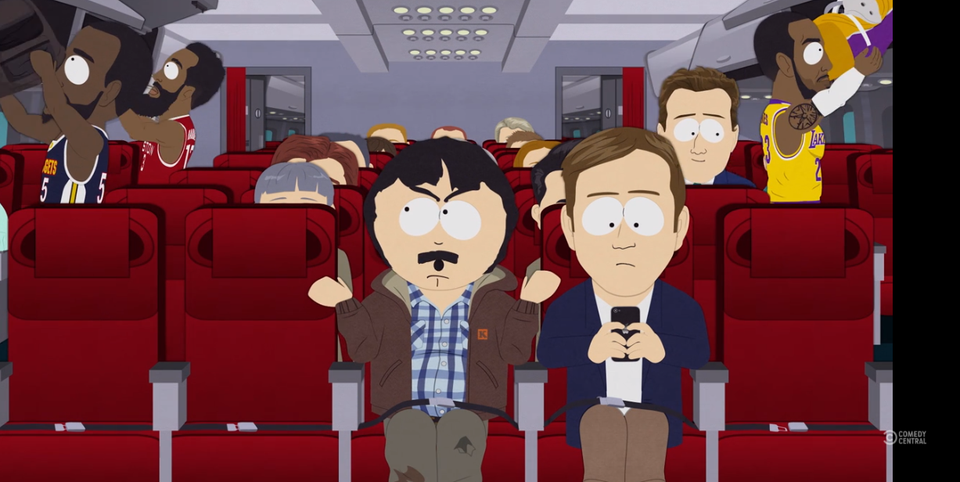
On Monday’s blog, Matt chronicled the current controversy surrounding the NBA and China. Essentially, the general manager of the Houston Rockets posted a single, simple tweet in support of the pro-democracy protesters in Hong Kong, and that single tweet deeply offended China’s authoritarian regime so much that it is now canceling Chinese broadcasts of NBA games. Rather than stand up for basic freedoms and democracy, the NBA bent over backwards to apologize to China, as it doesn’t want to lose access to the Chinese market.
At the same time this was all going on, the long-running show South Park put together a dandy of an episode mocking China’s government and the American corporations (including the NBA!) that grovel to it. In response, China swiftly banned the show and scrubbed all references to it from the Chinese Internet. Trey Parker and Matt Stone, the creators of South Park, responded in their usual form.
Team AAM watched the South Park episode today — for research purposes, of course — and I’ve got to say, the show nailed it. It’s a brutal takedown of the control Chinese censors now have over Hollywood and other American corporations, mocking not only China’s government but the big companies that sell out to the regime.
We put together a guide to help viewers understand some of the issues referenced in the episode, which is available to stream online for free.
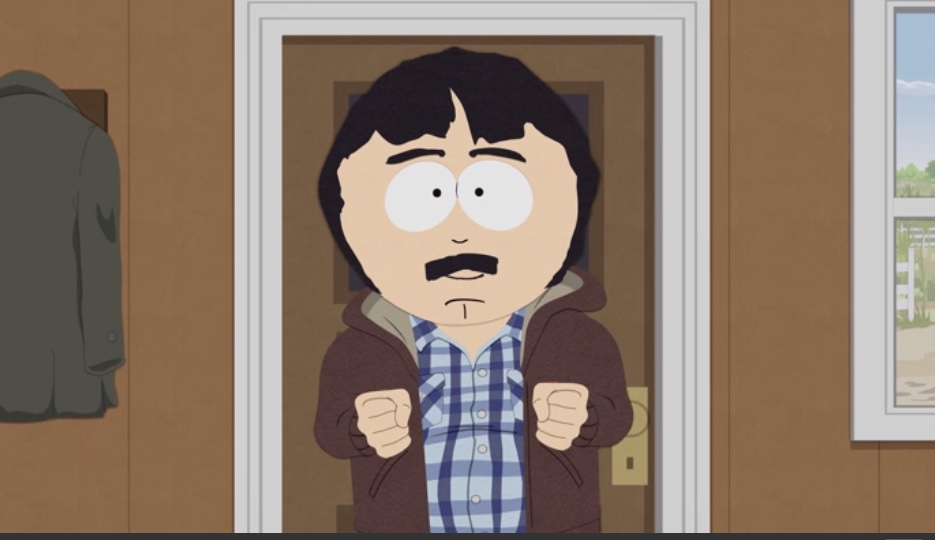
“I did a little research. Turns out, there’s a lot of people in China. If we could get like, 2 percent of that market to buy our weed, we’d make millions, millions of dollars.”
The episode begins with Randy Marsh, father of fourth grader Stan Marsh, coming up with the idea to sell his, um, products from his Tegridy Farms to China. Marsh’s idea isn’t exactly unique — many, many American companies want access to the Chinese market, given that around 1.4 billion people live in China. There’s even a whole consulting industry out there to help companies break in, and allowing more American businesses to access more of China’s market is a key sticking point of the ongoing U.S.-China trade talks, which are going super great.
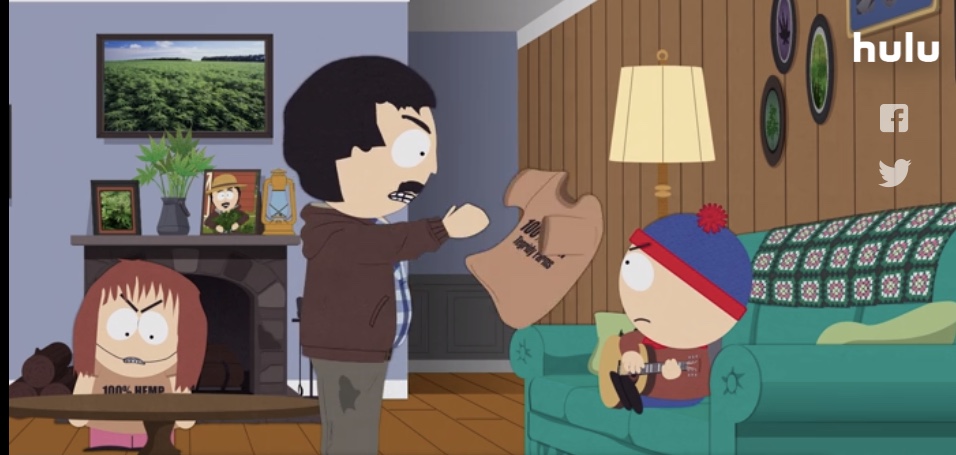
“They’re available on Amazon starting Friday, so you could really promote the family business while I’m gone.”
The other plotline this episode centers on Stan, whose band is playing the local festival. Randy wants Stan to wear a Tegridy Farms T-shirt during his perfomance, noting that said shirts are available on Amazon, which is hugely popular in the United States… but has notably given up on the Chinese market.
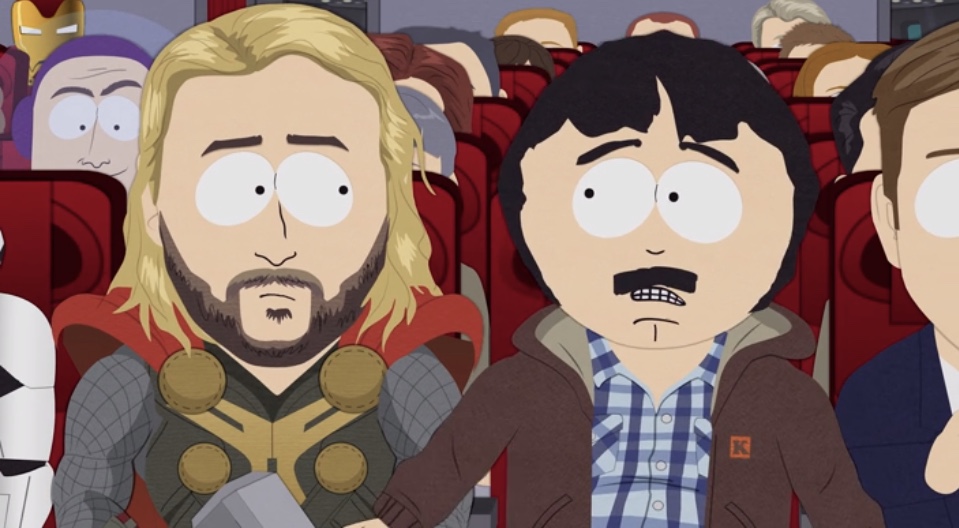
“It’s my first time, I’m trying to drum up a little business.”
As Randy sits on the plane to leave for China, he realizes that he isn’t the first person to come up with the idea of selling his stuff in China. First he meets someone in the fashion industry, then NBA players board the plane — an incredibly timely reference by South Park — followed by a host of characters owned by none other than the Walt Disney Company. Now, Disney has been a target of South Park in the past, but the show took aim this time for a reason — the company has bet big on China, its movies are very popular in China, and also subject to Chinese censors.
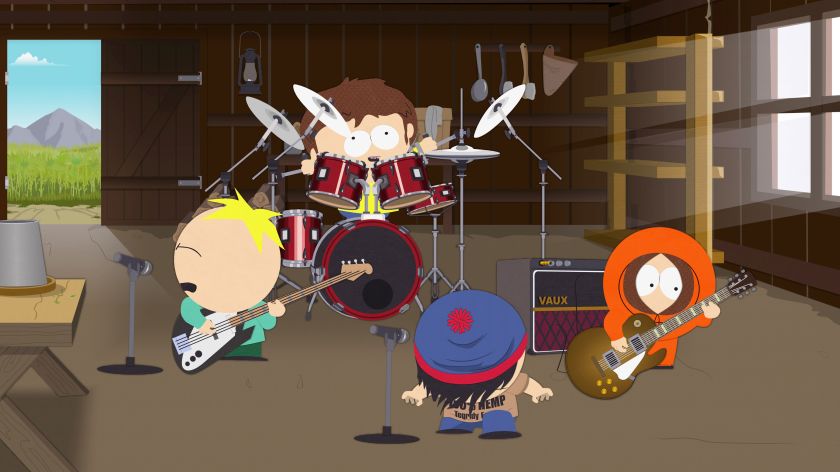
“Records? What are you kids, from the ’90s?”
This actually has nothing to do with China, but it’s a good inside joke.
When Stan and his band are approached by a record producer, they ask if he wants to do a record with them, prompting this response (which is funny, since South Park has been on the air since the 1990s). The producer doesn’t want to do a record, but rather put together a biopic, which of course are all the rage these days.
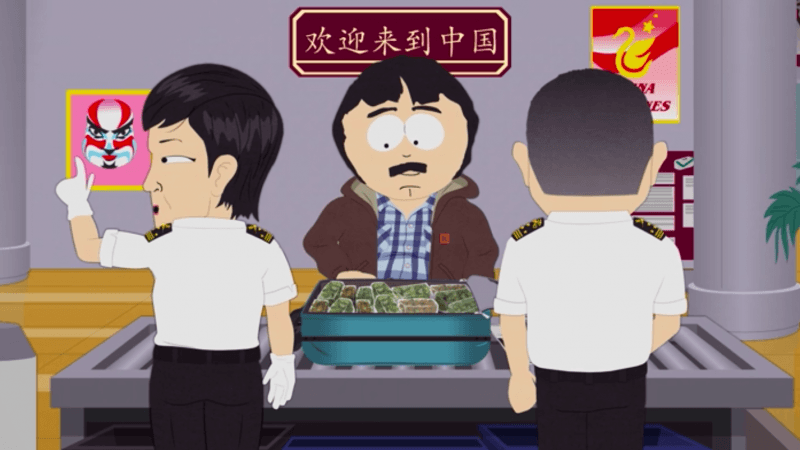
“I’m a small business owner from the United States.”
Randy lands in China, and immediately begins pitching his product. He’s arrested at the airport, since his product is marijuana.
This is also a good time to point out that China routinely steals the intellectual property (IP) and trade secrets of U.S. businesses. And in order to operate in China, American companies must transfer their technology to the Chinese government, which gives China a leg-up on research and development (at the expense of American companies that invested in that R&D).
(Editor’s note: We won’t weigh in on whether marijuana should be legal or not, but suffice to say it’s not a good idea to bring a suitcase full of it to China, or any country, for that matter.)
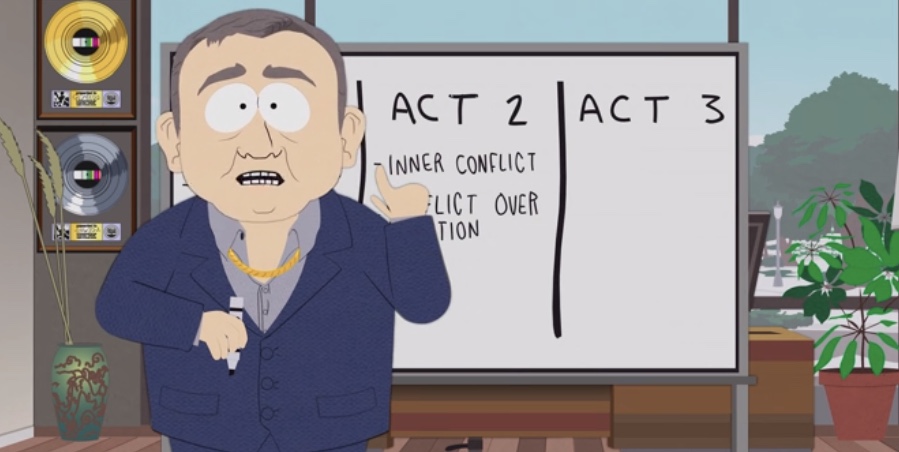
“Kenny learned to play bass watching YouTubes of John Lennon with the Dalai Lama.”
“Oh, we don’t want to go there. Talking about the Dalai Lama doesn’t go over well with the Chinese… to make money, we need to make sure it clears the Chinese censors. We want those Chinese viewers.”
As Stan and his band share their story with the producer for their biopic, he cautions them against referencing the Dalai Lama, as it will offend China. Chinese authorities very much dislike the Dalai Lama, who is the spiritual leader of Tibet. Although China claims authority over the remote region — which it has enforced at times through violent means — there are many who believe Tibet should be independent.
The conflict has made its way to Hollywood. A-lister Brad Pitt famously was banned from China for 20 years for starring in the film “Seven Years in Tibet,” while Richard Gere believes he’s lost status in Hollywood because of his longtime vocal support of Tibet.
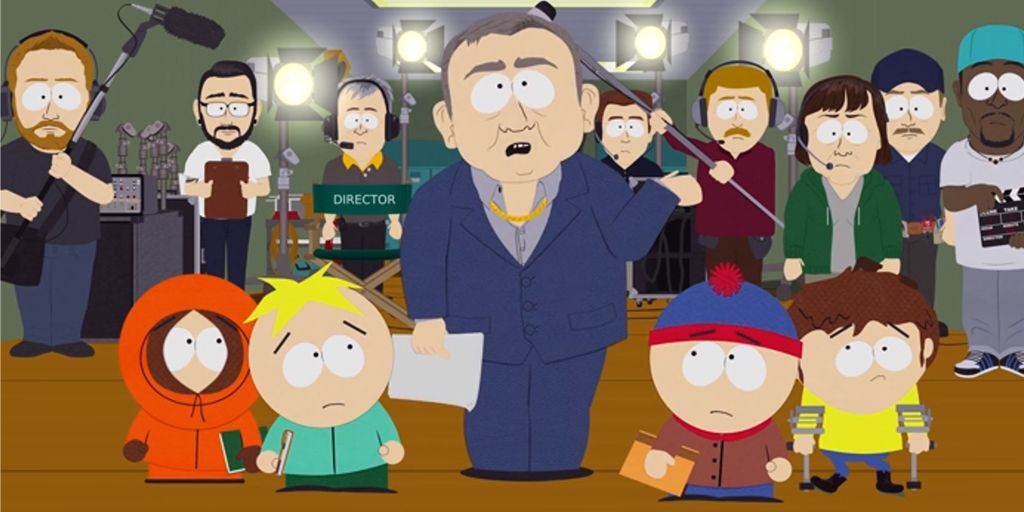
“You know what they say — you gotta lower your ideas of freedom if you want to suck on the warm teet of China.”
This is a crude quote from the movie producer, but it’s not wrong. Chinese censors have had a direct hand in altering American film scripts for years now. The upcoming “Top Gun” sequel saw changes to Maverick’s iconic leather jacket to appease the Chinese; the 2012 remake of “Red Dawn” switched out the villains from China to North Korea. There are more examples.
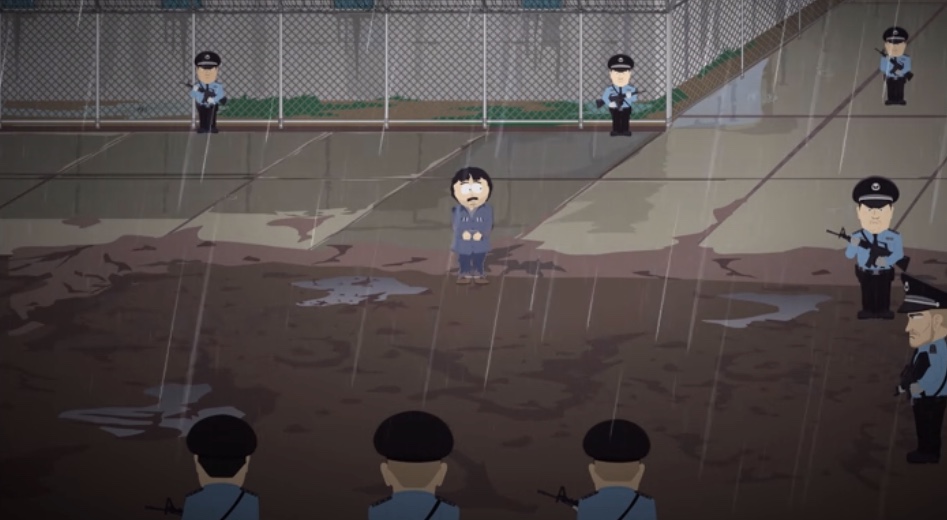
“The party is more important than the individual.”
After being detained, Randy Marsh is sent to a brutal Chinese re-education camp. China downplays and even outright denies the existence of these camps, but groups like Amnesty International say up to 1 million people have been detained in these places. Many are from ethnic groups such as the Uighurs and Kazakhs, and Amnesty International describes these camps as “places of brainwashing, torture and punishment that hark back to the darkest hours of the Mao-era.”
Suffice to say, China doesn’t like it when people draw attention to this.
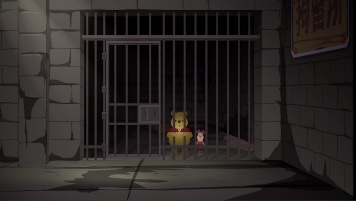
“We’re illegal in China now.”
Back in 2013, a meme began spreading across China that compared sweet-yet-portly Winnie the Pooh to Chinese President Xi Jinping. It continued to pick up steam over the years, and that apparently didn’t please Xi (who is considered the most powerful leader in China since Mao). China banned the 2018 film “Christopher Robin,” an adaptation of the Winnie the Pooh story, because of the popular meme.
In the episode, Randy meets Pooh and his friend Piglet in the re-education camp. Spoiler: It doesn’t end well for the bear.
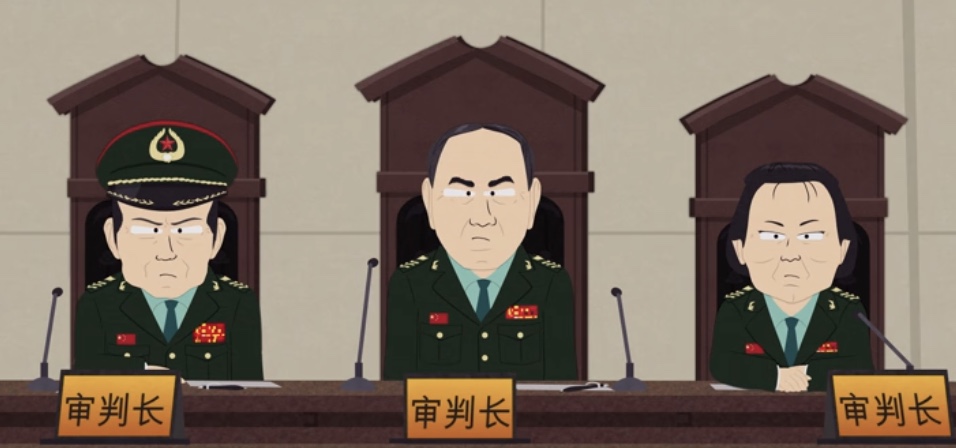
“I think I might be able to work out a deal for all you nice folks.”
Even though Randy has been sent to a re-education camp, he remains laser-focused on selling his weed in China, and continues to drive home the point during an appearance before a tribunal.
This isn’t unlike many American corporations, who continue to seek market access there but continue to get burned. As The Economist put it: “China’s communist regime… is attempting to force companies in China, including foreign ones, to bend to its rules. At worst, this means pushing them to assist China’s armed forces and its police state.”
Yet many American companies are willing to give China millions of dollars worth of IP and turn a blind eye to human rights abuses in the hopes of possibly accessing the Chinese market.
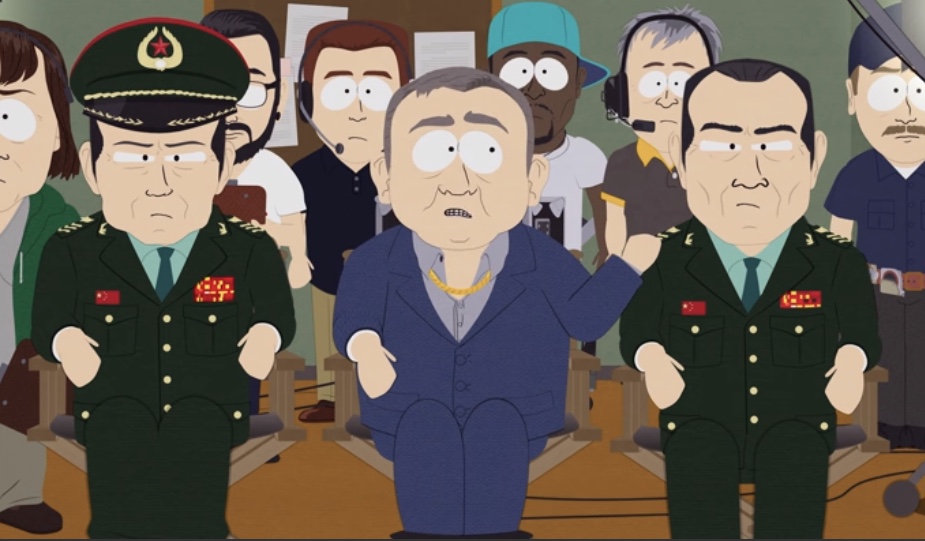
“Listen guys, we just got word back from the Chinese censors. They don’t want us mentioning organ transplants… no homosexuality, either.”
As the boys film their biopic, they continue to face scrunity from the censors — this time because of a reference to transplants. It’s a touchy subject for China, which has long been accused of forcibly removing organs from prisoners of conscience, like the Falun Gong, Uighur Muslims, and Tibetan Buddhists.
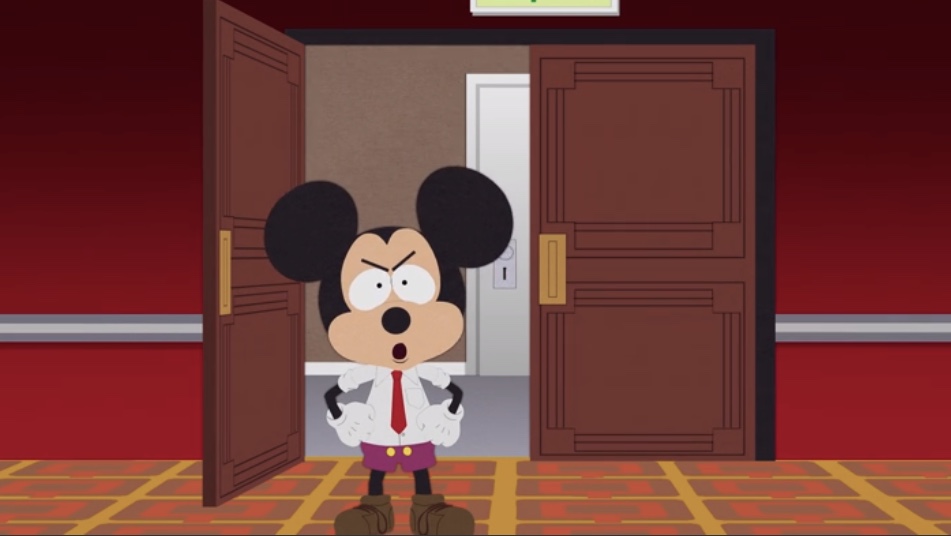
“Who here thought they had permission to say anything critical of Chinese politics?”
Randy has been released by Chinese authorties and for some reason has met up with the Disney-owned characters from the plane ride. Enter Mickey Mouse, who is very angry that someone is causing problems in China.
(There’s another good line here, via Mickey: “What’s South Park? Do I own that?”)
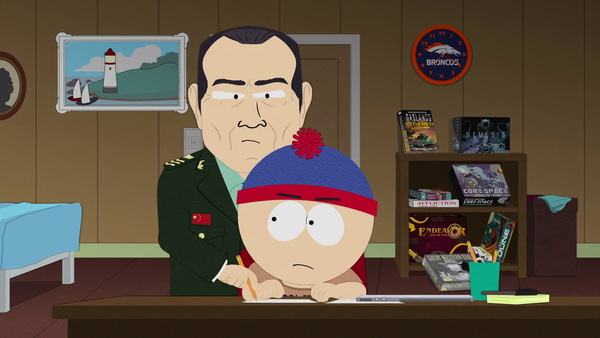
“These guys were nice enough to come all the way from China to help us with our standards.”
As the episode rolls on, Chinese censors become more present in the production of the biopic, and even force a rewrite of the film’s entire second act (not unlike that Red Dawn remake we mentioned above).
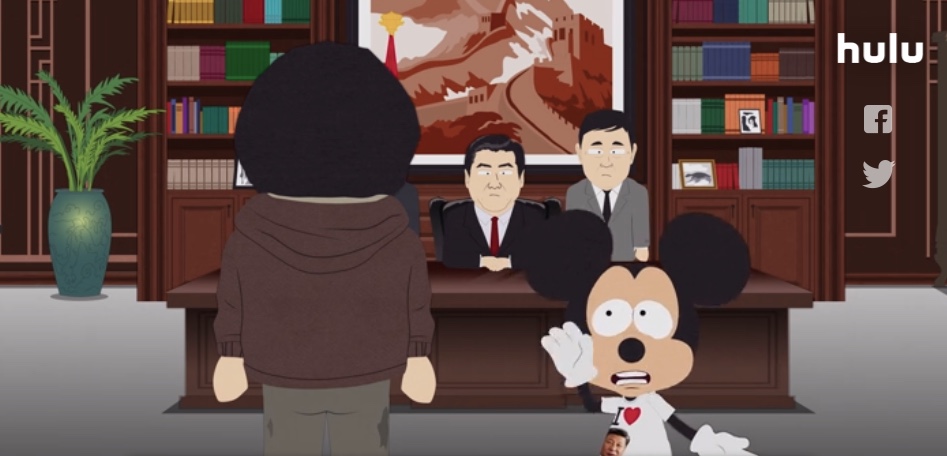
“What if we took their side then?”
Back in China, Randy convinces Mickey Mouse to directly pitch Xi Jinping to allow them to sell the Tegridy Farms marijuana in China. But Xi remains displeased because of good old Winnie the Pooh. In a particularly brutal scene, Randy murders the iconic Winnie the Pooh in order to appease China, symbolic of the lengths Hollywood is now willing to go to please Chinese authorities.
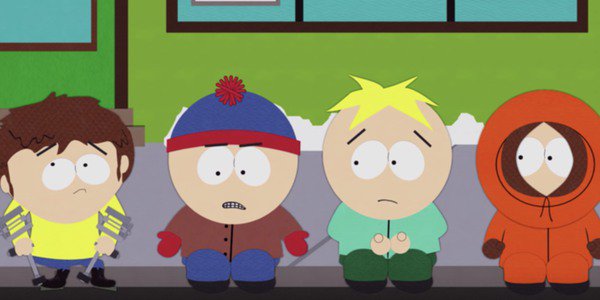
“We live in a time when the only movies that us American kids go see are ones that are approved by China.”
This is a line from the young Stan Marsh, and it really speaks for itself, doesn’t it?
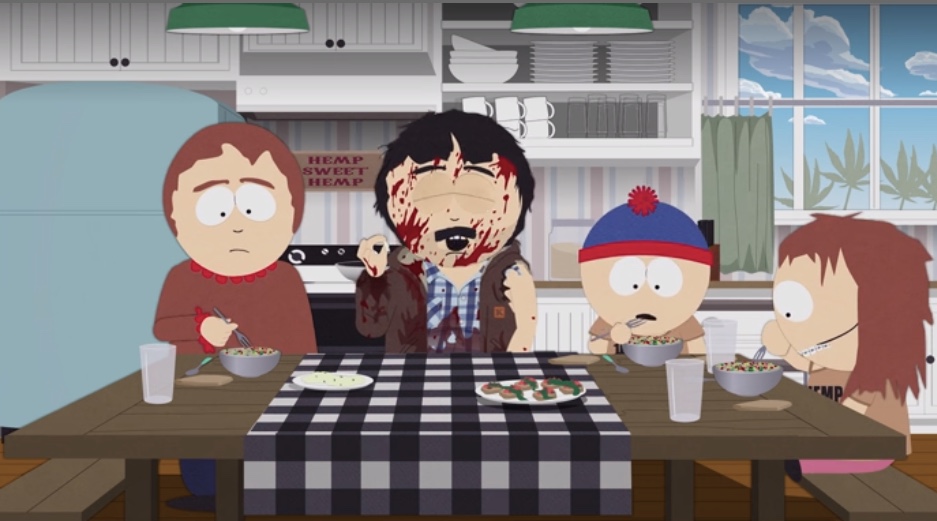
“I, for one, think the world is going to be a better and safer place now that the world finally has tegridy.”
Another spot-on piece of satire, this time from Randy (whose brutal murder of Pooh earned him Chinese market access and a whole lot of money). And it’s reflective of the attitude that many have held of China since it entered the World Trade Organization (WTO) back in 2001. Although China remains largely closed off, and American workers and companies have suffered — 3.4 million workers have lost their jobs thanks to the Chinese trade deficit — there are some who still argue that China will eventually open its market and, as a result, move toward democracy.
The brilliance of this South Park episode is that Parker and Stone called out that nonsense. China isn’t anywhere near a democracy. But American corporations like Disney — and the NBA — are willing to turn their backs on the people fighting for freedom in the elusive hopes that they may be able to sell their stuff in the Chinese market. There’s a price.
